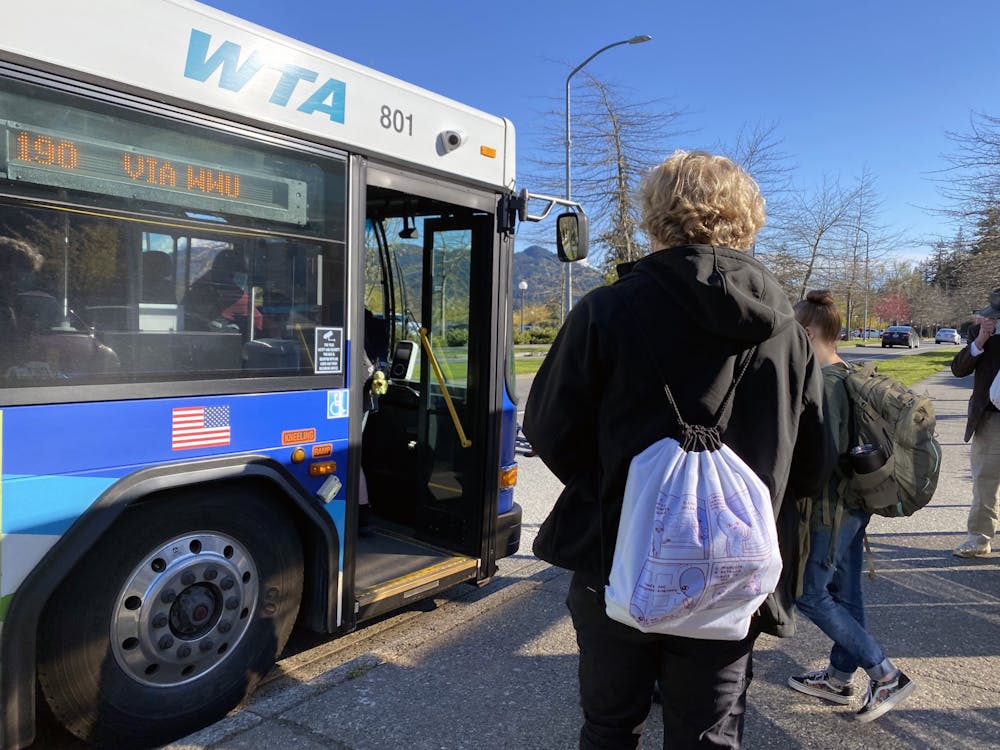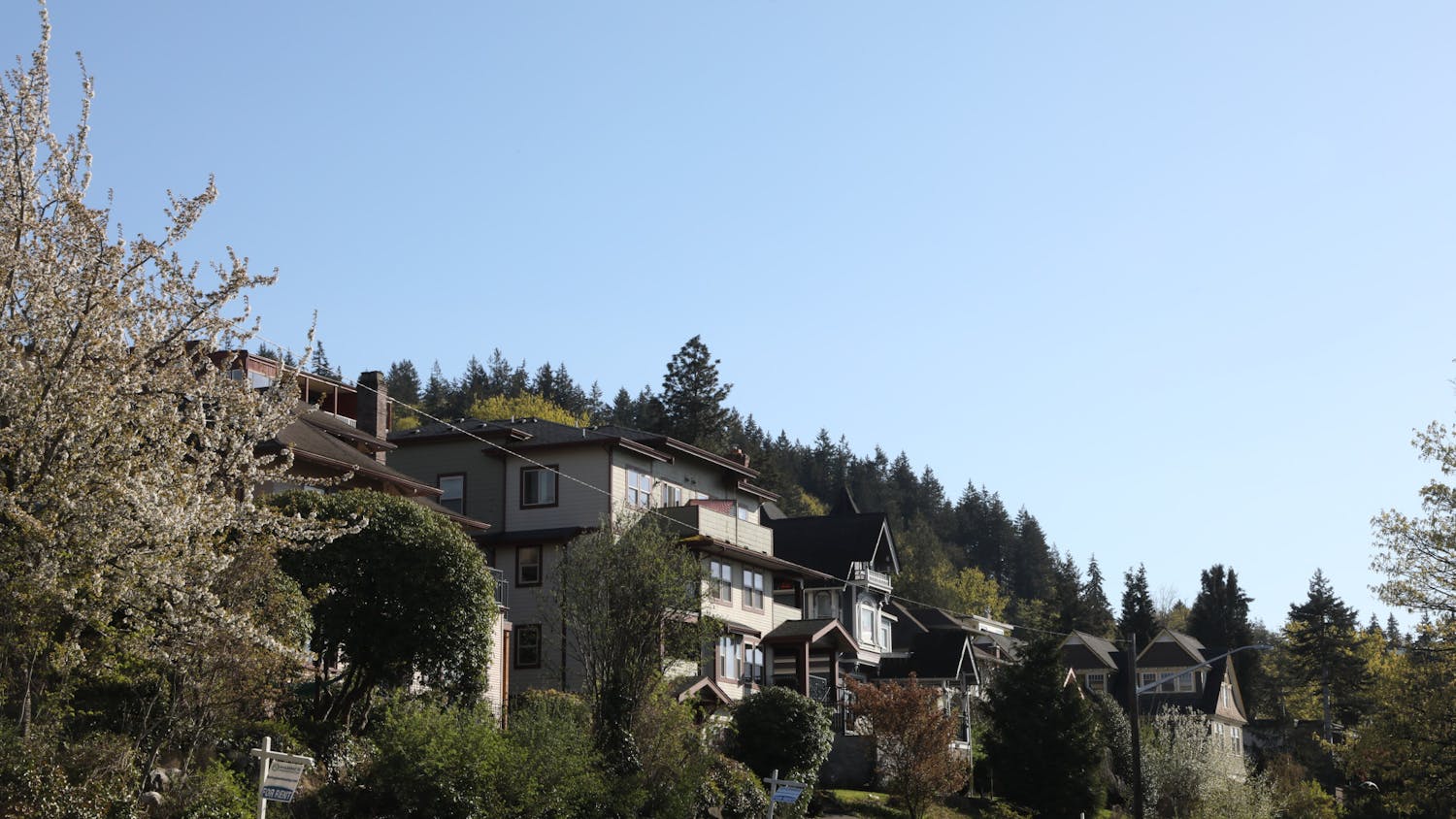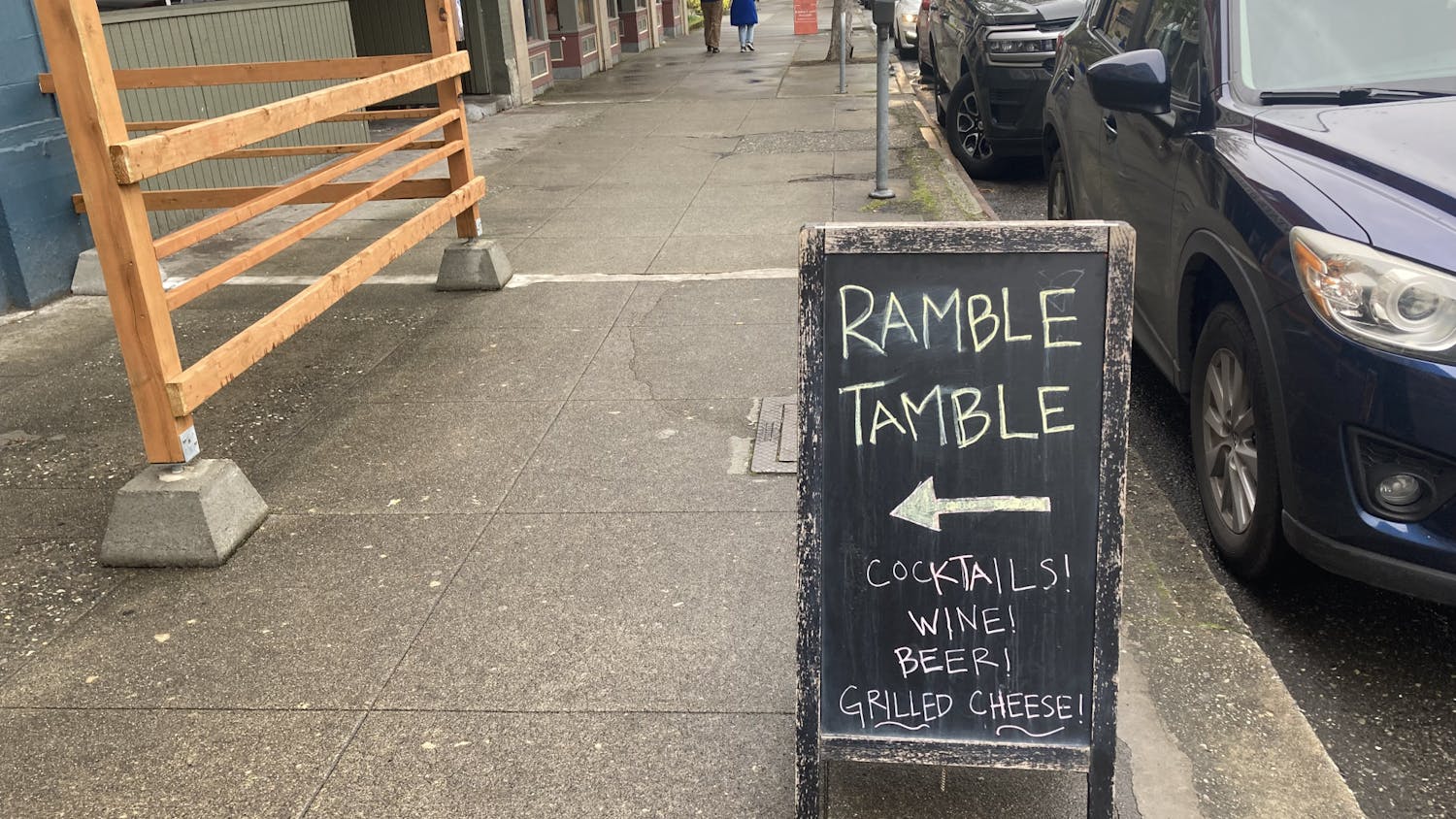Western Washington University lifted its campus-wide mask mandate on April 11, leaving students with a decision to mask or unmask.
Students expressed a wide variety of opinions and feelings surrounding mask-wearing on campus and in general.
Laura Overstreet, a professor of sociology at Western, put together a study of her students’ responses to the mask mandate dropping on campus.
She said that a lot of the information she received surprised her. A consistent theme that arose from students was judgment from others.
“I should not have been surprised about the political signals and concerns about that,” Overstreet said. “Judgment was a big thing, not only with the worry of feeling judged, but people had judgemental attitudes toward whether or not someone unmasks.”
The present themes found through the study included adjustment, politics, identity, regional differences and hope for the future.
“I’m actually kind of a little bit hopeful this time,” said Scout Powell, a fourth-year student. “I do feel like it’s the beginning of a new normal. I am still a little hesitant because I am lowkey traumatized. So, I am slower to jump the ball on not wearing masks, but I am a little bit hopeful.”
Powell explained her feelings of trauma surrounding the past two years of consistent mask-wearing.
“I think it's definitely a trauma response and definitely my hesitancy in trusting the media and everything like that,” Powell said. “I don’t know if it's pleasing the public or the best decision. It is very political. A lot of my trauma comes from not trusting in anybody.”
Other students referred to a hesitancy towards norms shifting.
“I genuinely don’t know when I am going to stop wearing my mask, like to work or to the grocery store,” said Marina Clever, a fifth-year student. “Something would have to significantly change even more so for me to feel comfortable doing that again.”
Clever expressed overall discomfort with the recent mandate lift.
“In general, indoors is where I feel that it is most important to have the masks on,” Clever said. “So, I think it’s ill-advised and not well thought out. In general, you don’t know who in your space is immunocompromised. So, it’s like forcing them to take a gamble, even if you know for yourself that you’d be fine if somehow you did get infected.”
Students emphasized a large social aspect connected to masks and identity.
“When people can ridicule so much more about you just based on whether you want to wear a mask or not, it is a really stressful thing,” said Kazmyn Zercher, a third-year student. “It gives me anxiety just to take off my mask at all even though I am being so aware of when I actually choose to do it.”
Zercher highlighted the importance of respect when deciding whether to wear a mask or not.
“I want to be respectful of everybody,” Zercher said. “I never want to be the reason that a room becomes uncomfortable for somebody or feels unsafe. And that goes for much more than just wearing a mask. Just being a safe person in general.”
Kim Klapstein, a second-year student, addressed the social aspects of mask-wearing.
“I do think that [social pressure] plays a part in it,” said Kalpstein. “I know that I am much more comfortable eating in the [Viking Union], so because it is that kind of environment I feel better doing it. But, if it's a classroom environment where everyone is wearing a mask I would feel very out of place not wearing one. I feel like there are norms and expectations from people around you, but also mixed in with everyone's personal comfort level.”
Klapstein felt that the mandate drop was too soon.
“As soon as people see numbers start to go [down] they feel like that will continue even if we don't continue to take precautions,” Klapstein said. “Which is really flawed reasoning, so I feel like it’s really too soon. I know people say that it's been two years but in the grand scheme of things it also has only been two years.”
Students also communicated the presence of a political divide in regard to mask-wearing before the mandate was lifted.
“There are a host of explanations that could account for someone's actions,” said Nicki Moriarty, a first-year student. “But I do think that people are definitely worried that if they don't wear their mask they are going to be seen as conservative.”
Moriarty recalled mask norms in her hometown compared to Bellingham and Western.
“My hometown is a very conservative small town south of Seattle,” said Moriarty. “Even when the mask mandate was still on, no one would wear their masks there. I would wear my mask and get dirty looks and cussed out. Bellingham is so much more compassionate in general. That kind of social pressure growing up somewhere so opposite of this you see both environments and the social pressure in Bellingham is definitely a lot less aggressive.”
Overstreet said identity is playing a large role in students’ decisions to wear a mask or not. Masks became much more than a safety measure over the past two years, and have developed into an identity marker in some ways.
“The whole aspect of [mask-wearing] added to identity significance,” Overstreet said. “So much is tied to that, particularly at this point in a person's life. I think it’s very salient for students in that way.”
Sophie Kashman (she/her) is a campus news reporter for The Front. She is currently a second-year student and majoring in Theatre Performance as well as a pre-major in Journalism with a focus in public relations. Some of her hobbies include, play/songwriting, singing, art, and hiking.
You can reach her at sophiekashman.thefront@gmail.com or on Instagram @sophie_kashman.






